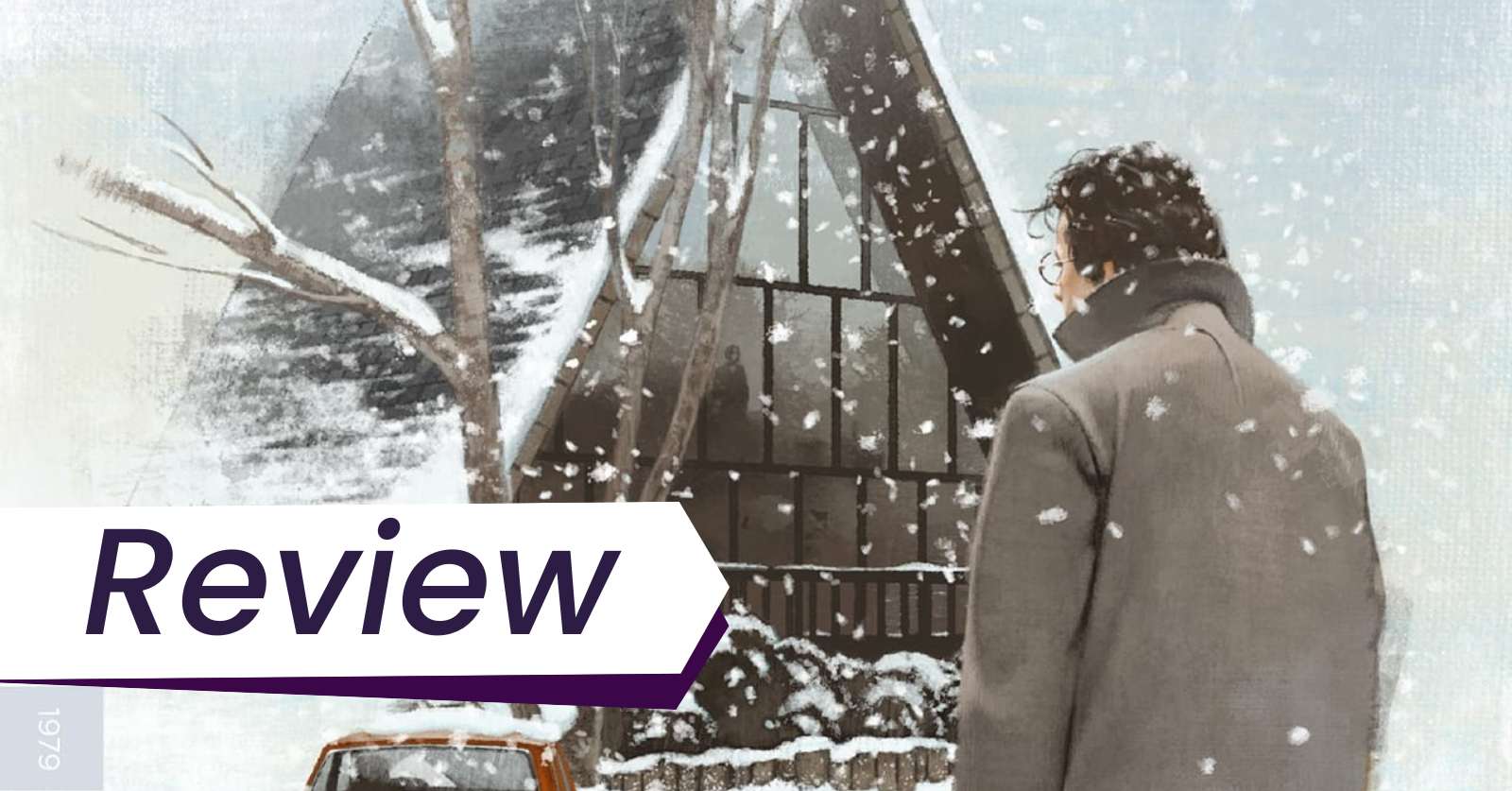Alex Heeney reviews the new Criterion Collection Blu-Ray release of Joan Micklin Silver’s Chilly Scenes of Winter.

Discover one film you didn’t know you needed:
Not in the zeitgeist. Not pushed by streamers.
But still easy to find — and worth sitting with.
And a guide to help you do just that.
Despite (or perhaps because of) the Criterion Collection’s reputation as being the North American label for the most important films in the cinematic canon, the collection is low on films directed by women. In 2016, critic Sophie Mayer combed through the entire collection and found that only 2.6% of their titles (21 total) were directed or co-directed by women. Today, the percentage has nearly doubled (4.8%): women direct 80 titles out of 1659.
That’s a testament to the deliberate effort Criterion has been making to very slowly right that ship. They’ve been adding films by women to its collection, both new — Mia Hansen-Løve’s Bergman Island (released in 2022), Ekwa Msangi’s Farewell Amor (released in 2022), Céline Sciamma’s Portrait of a Lady on Fire (released in 2020) and Petite Maman (released in 2023) — and old — Girlfriends (1978, released in 2020), a box-set of films by Swedish filmmaker Mai Zetterling (1960s, released in 2022), and Mira Nair’s Mississippi Masala (1991, released in 2022). The company’s streaming service, Criterion Channel, which has a better batting average than the Collection for women directors (and other minorities) overall, also often offers a preview of titles newly added to the collection.
Contextualizing Chilly Scenes of Winter amongst Micklin Silver’s work
Last month, Criterion added its first Joan Micklin Silver (Hester Street, Between the Lines, Crossing Delancey) film to its physical media collection, the Utah-set sort of rom-com Chilly Scenes of Winter (1979). Although Between the Lines (1976) streamed on the channel last year, Chilly Scenes of Winter won’t be getting a digital release on either streaming or VOD, making this Blu-Ray a particular treasure.
Although Micklin Silver’s films are almost all romances, they all defiantly challenge the tropes of the genre, while using the genre as a way to kidnap in stories about under-seen milieus or characters. Hester Street is a second-chance romance wrapped inside a black-and-white film about nineteenth-century Jewish immigration from Russia to the United States, and it launched Carol Kane’s career.
Between the Lines has a subplot about whether an alt-newspaper’s star reporter (John Heard) could make things work with his on-again-off-again lover (Lindsay Crouse), a star photographer, whilst the very concept of alt-newspapers was disappearing. (It’s also the first, and perhaps to this day still the best film to milk Jeff Goldblum’s comic talents, including his gangly physicality.) Crossing Delancey is, on the surface, about a woman trying to find love. More crucially, she’s caught between the snobbery of climbing through New York intellectual circles and her more modest downtown upbringing amongst Jewish immigrants. And it’s getting in the way of her love life.
A whirlwind romance told after it’s over

Likewise, Chilly Scenes of Winter is technically the story of Charles (John Heard), a mid-level civil servant, and his whirlwind romance with the records keeper in his office, Laura (Mary Beth Hurt), who has temporarily left her husband and step-child in search of something more. But when the film opens, their relationship is already a year in the past. Laura has returned to her husband. Charles, however, still believes that Laura could walk back in his door and into his life at any moment. Nobody else agrees. In flashback, Charles recounts his history with Laura, and slowly but surely, through reliving it and through the help of his community, he accepts that the relationship ended some time ago.
The film’s flashback structure aligns with the story of someone who already lives the life of an older person but lacks the maturity of many others his age. He is so used to emotional labour that he actively seeks it, but hasn’t quite figured out how to care for himself. Though barely in his thirties, Charles already owns a house, his grandmother’s, which he never redecorates. It’s the perfect place to take in strays: his sister when she visits home from college, Laura a year earlier, and near the film’s beginning, his best friend, Sam (the impeccable Peter Riegert), a jacket salesman who just lost his job. Though barely an adult himself, Charles has been the primary caregiver for his suicidal and depressed mother.
A dull, ordinary guy
Late in the film, Charles contrives to meet Laura’s husband to scope out the competition and deflatingly concludes that they’re both “dull, ordinary guy[s],” only the husband is tall while Charles is “medium-sized.” As a romantic hero, though, Charles is neither dull nor ordinary. He’s already quite domestic, living in a house suited for someone much older than him, and cooking for friends and family.
He’s relatively inexperienced both romantically and sexually. When his boss inappropriately solicits advice from him to help with the boss’s son’s sexual problems, Charles muses to us in voiceover that he’s much less up on this kind of stuff than his boss assumes. His inexperience and naivety might help explain why he rushes headlong into a relationship with Laura. First, he buys her a chair to help her nest in her new place. Before long, he invites her to move in with him. He expects to spend so much time with Laura that she finds it suffocating.
Charles’s immaturity

While Micklin Silver admires Charles’s emotional openness, the film is frank about Charles’s immaturity, partly because he starts to figure this out about himself as he retells the story of his relationship with Laura. If Laura needs some space, he sulks, gets passive-aggressive, and says some choice things that haven’t aged well. At the same time, Charles really listens to what Laura says. At one point, he shares the unexpected insight that perhaps her husband married her in search of a live-in housekeeper and mother for his daughter. We rarely hear perceptive remarks like this from men in cinema today, let alone forty years ago. Charles’s ideas about taking care of Laura aren’t exactly paternalistic either: he doesn’t want or mean to constrict her, but rather, to give her love in whatever way he’s capable. But that might end up being accidentally patriarchal.
Beyond the romance
Of course, the best parts of Chilly Scenes of Winter aren’t about romance at all. At its core, the film is about three people dealing with existential crises, sometimes using romance as a solution that it isn’t. Laura’s crisis propels the action: after she leaves her husband, she falls into a relationship with Charles because it’s easier and feels better than figuring out what she wants.
But it ultimately sets them up to fail because it’s too much too soon. For much of the film, Charles views Laura’s dilemma as a false dichotomy of choosing between Charles and her husband. He fears asking her what she wants lest he get an answer he doesn’t like. Eventually, he asks, and decides it’s not worth continuing to live in the depressing limbo he spends the film in to wait for her to possibly be ready for a relationship.
A film about friendship

It’s also a film about friendship. The film pivots around Charles’s obsession with Laura, but it’s his lifelong friendship with Sam, a depressed, witty, and perceptive ladies’ man, that lingers. Male friendship often gets short shrift in films, shown more as an exchange of macho attitudes than mutual emotional support. Micklin Silver was forty years ahead in depicting male friendships between sensitive that still feel revolutionary in more recent films like Oslo, August 31st (2011) Another Round (2020), and The Eight Mountains (2022).
Micklin Silver had already worked with John Heard in Between the Lines, reteaming with him here for another stellar performance of a completely different man – naive and loving rather than cocky and distant. The big discovery of the film, though, is Peter Riegert, who had worked with Heard in American Lampoon and would soon go on to star in the career-defining Local Hero (also in the Criterion Collection in a gorgeous restoration!). Micklin Silver would reteam with him for Crossing Delancey 10 years later.
About the Criterion Collection Blu-Ray release of Chilly Scenes of Winter
The Criterion Blu-Ray release is a gorgeous 4K restoration, with an uncompressed monoaural track, of a film that was previously pretty much impossible to see. The special features include an alternate ending (an extra scene), which was the version of the film for its initial release under the inappropriate title Head over Heels. Micklin Silver was right, I think, to remove that final scene to leave the film less about the romance and more about Charles’s self-actualization. The special features also include a brief production history of the film, which was the first film Griffin Dunne would make with his company (he has a tiny cameo), and a thoughtful documentary about Micklin Silver’s life and career. She only started making films in in her ‘40s after she’d raised her kids, and her husband produced, and helped fund, her films.

